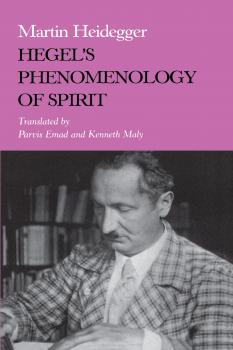ТОП просматриваемых книг сайта:
Martin Heidegger
Список книг автора Martin HeideggerАннотация
<P>Martin Heidegger’s 1934–1935 lectures on Friedrich Hölderlin’s hymns "Germania" and "The Rhine" are considered the most significant among Heidegger’s lectures on Hölderlin. Coming at a crucial time in his career, the text illustrates Heidegger’s turn toward language, art, and poetry while reflecting his despair at his failure to revolutionize the German university and his hope for a more profound revolution through the German language, guided by Hölderlin’s poetry. These lectures are important for understanding Heidegger’s changing relation to politics, his turn toward Nietzsche, his thinking about the German language, and his breakthrough to a new kind of poetic thinking. First published in 1980 as volume 39 of Heidegger’s Complete Works, this graceful and rigorous English-language translation will be widely discussed in continental philosophy and literary theory.</P>
Hegel's Phenomenology of Spirit - Martin Heidegger
Studies in Phenomenology and Existential PhilosophyАннотация
<P>The text of Martin Heidegger's 1930-1931 lecture course on Hegel's Phenomenology of Spirit contains some of Heidegger's most crucial statements about temporality, ontological difference and dialectic, and being and time in Hegel. Within the context of Heidegger's project of reinterpreting Western thought through its central figures, Heidegger takes up a fundamental concern of Being and Time, «a dismantling of the history of ontology with the problematic of temporality as a clue.» He shows that temporality is centrally involved in the movement of thinking called phenomenology of spirit.</P>
Информация о книге
Автор произведения Martin Heidegger




